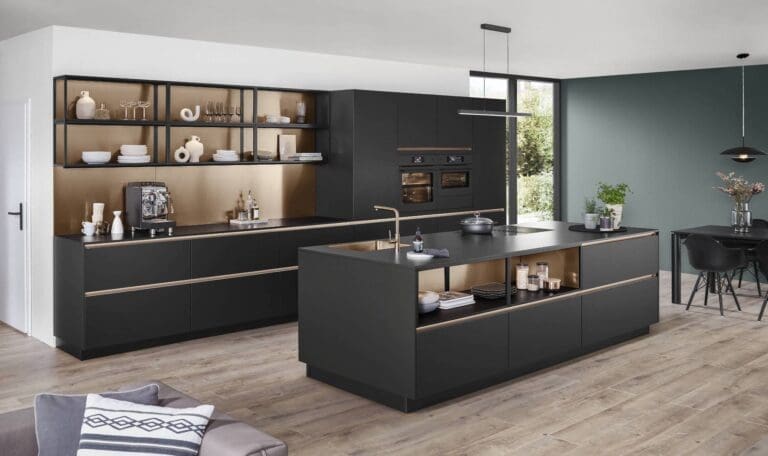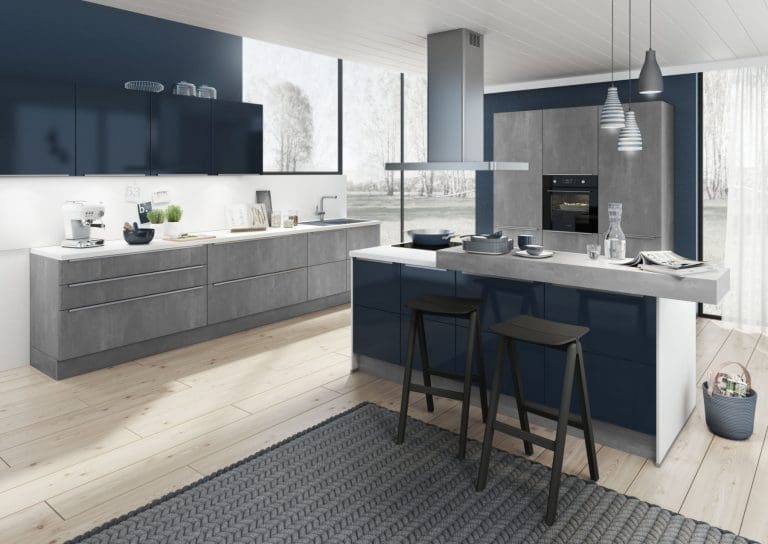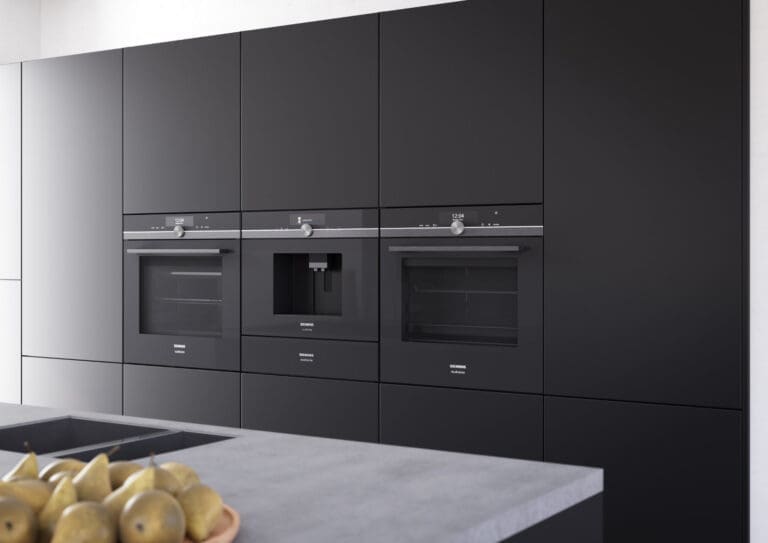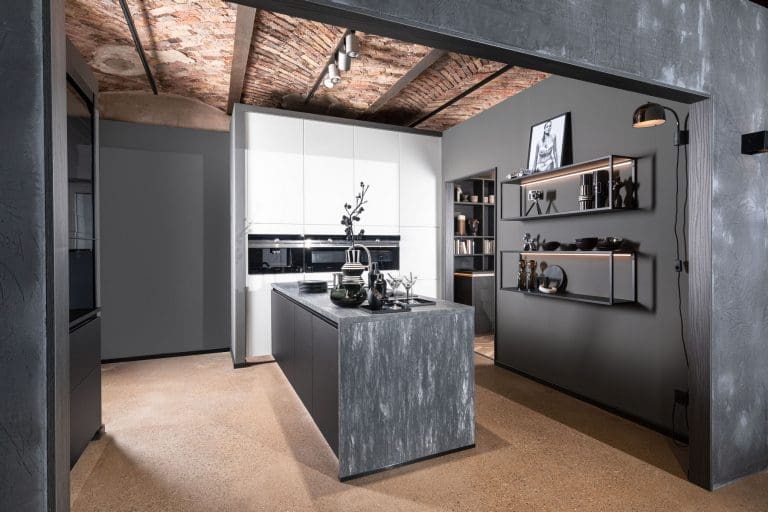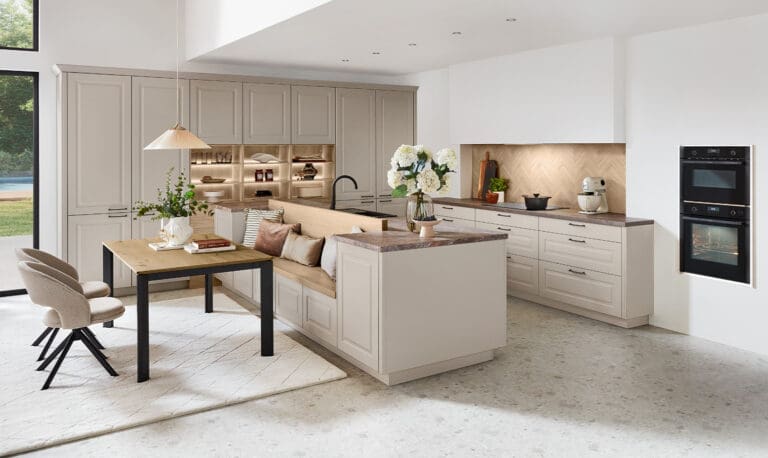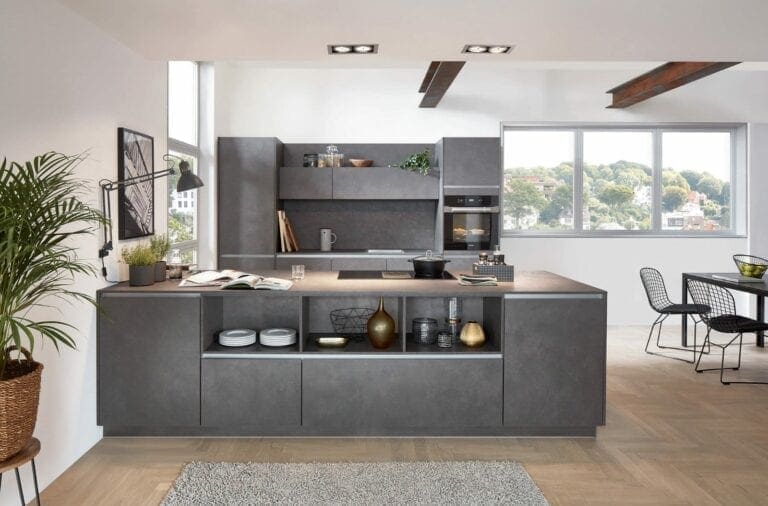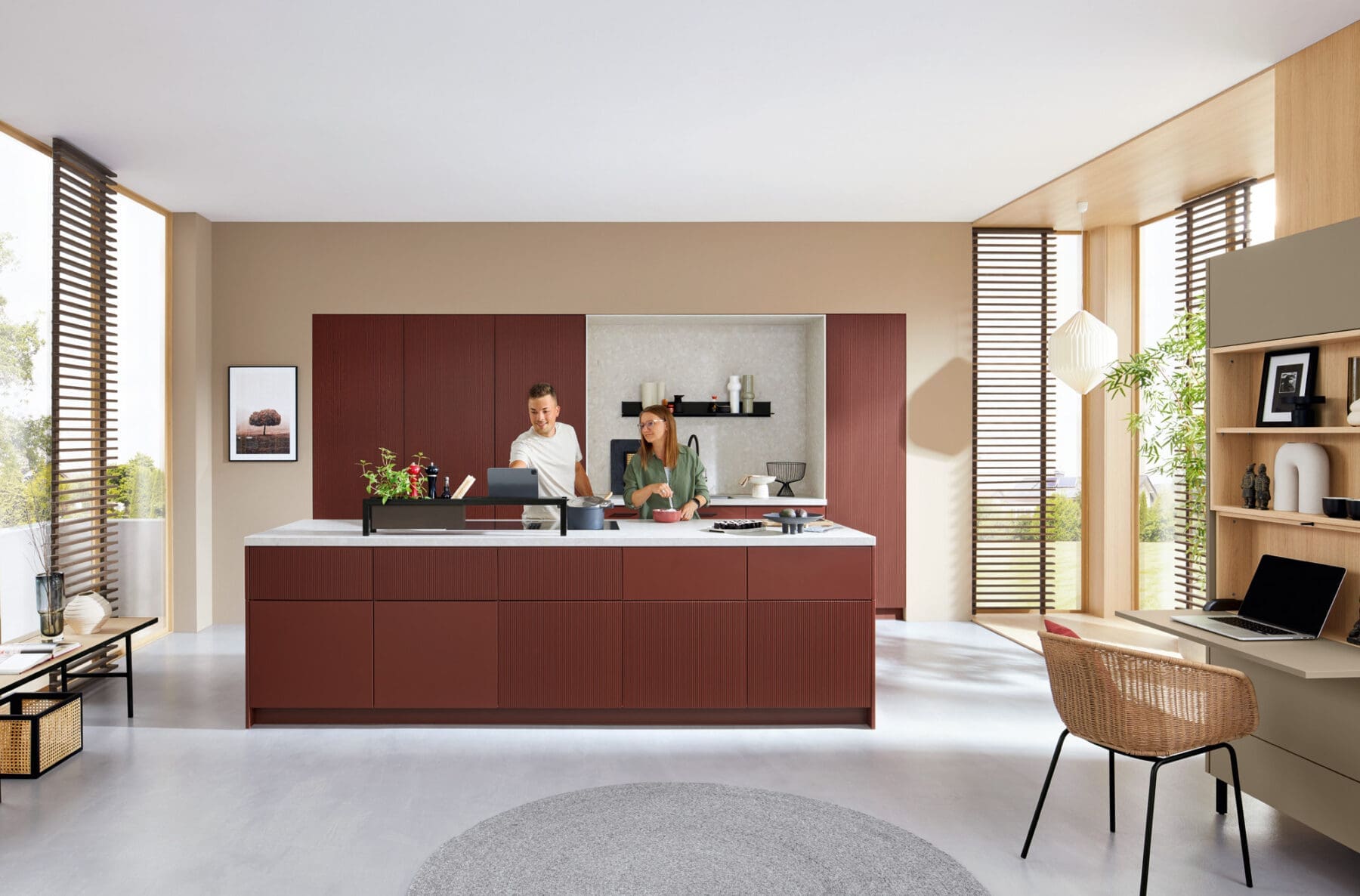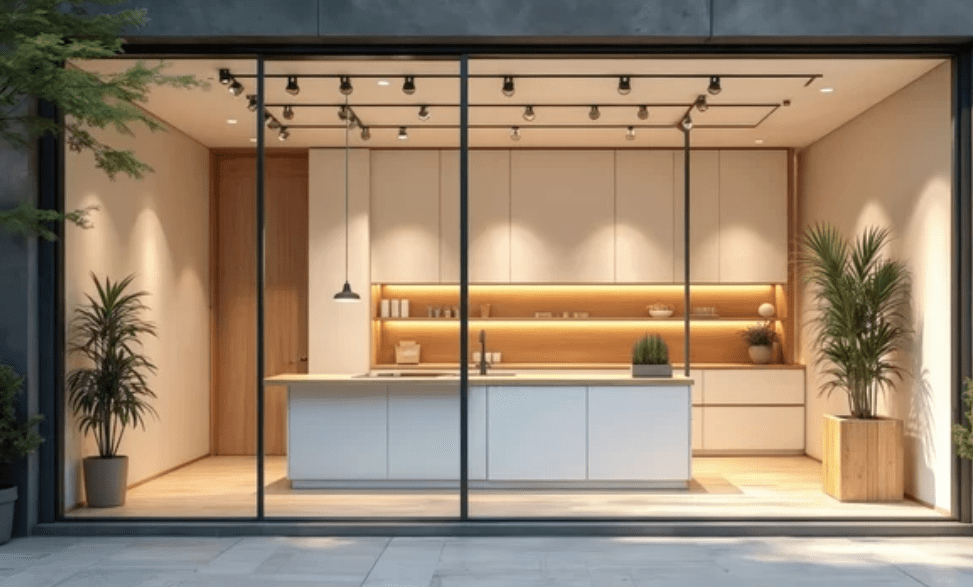British vs German Kitchens: Which Kitchen Brand Should You Choose?
Choosing the right kitchen is a significant decision. It’s a space that needs to combine style with functionality while reflecting your personal taste. If you’re deciding between a British or a German kitchen, understanding the key differences in both the product and manufacturing process will help you make an informed choice.
Both British and German kitchens offer exceptional quality, but their approach to design and craftsmanship varies. British kitchens are often rooted in tradition, with an emphasis on bespoke cabinetry and classic finishes. German kitchens, by contrast, are precision-engineered for efficiency and seamless design. But which is the right choice for you? Here, the Kitchen Experts explore the differences and benefits of each.
The Craftsmanship and Design Approach
One of the most noticeable differences between British and German kitchens is the design ethos. British kitchens are often crafted using traditional joinery techniques. Whilst they also produce modern styles, British kitchen brands are known to excel in handmade, in-frame cabinetry, offering a classic look that suits period homes and timeless interiors. Customisation is a key feature, with paint-to-order options, intricate detailing, and a variety of wood finishes available.
Alternatively, German kitchens are known for their precision engineering and clean aesthetics. They are designed for streamlined efficiency, with handleless doors, seamless integration, and modular storage solutions. Every component is meticulously planned to maximise functionality, ensuring a sleek, uncluttered appearance. Brands such as Nobilia, Bauformat, Brigitte, Pronorm, Rotpunkt, and Next 125 exemplify this approach, offering state-of-the-art designs with outstanding durability.
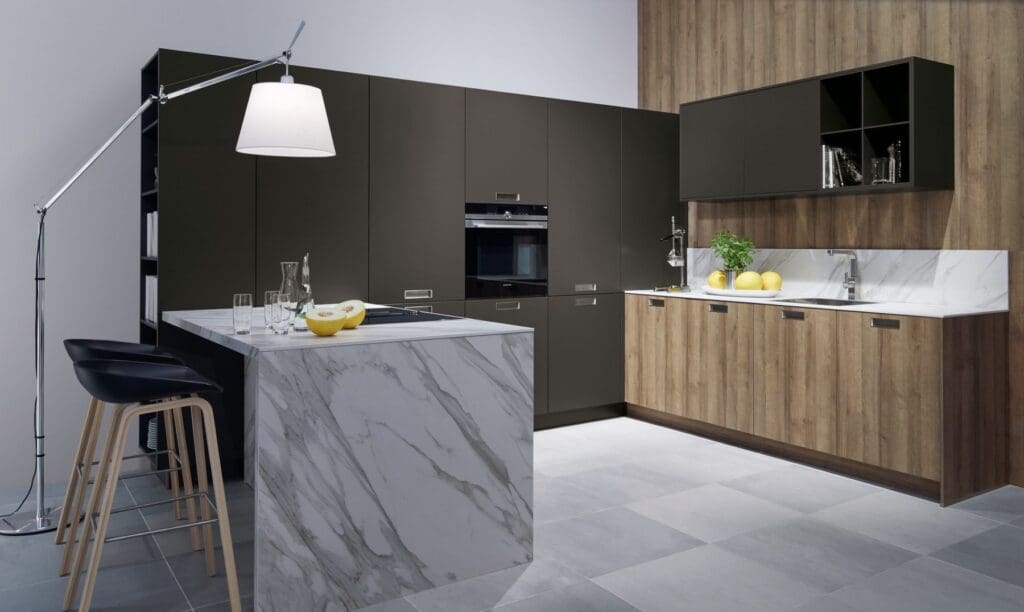
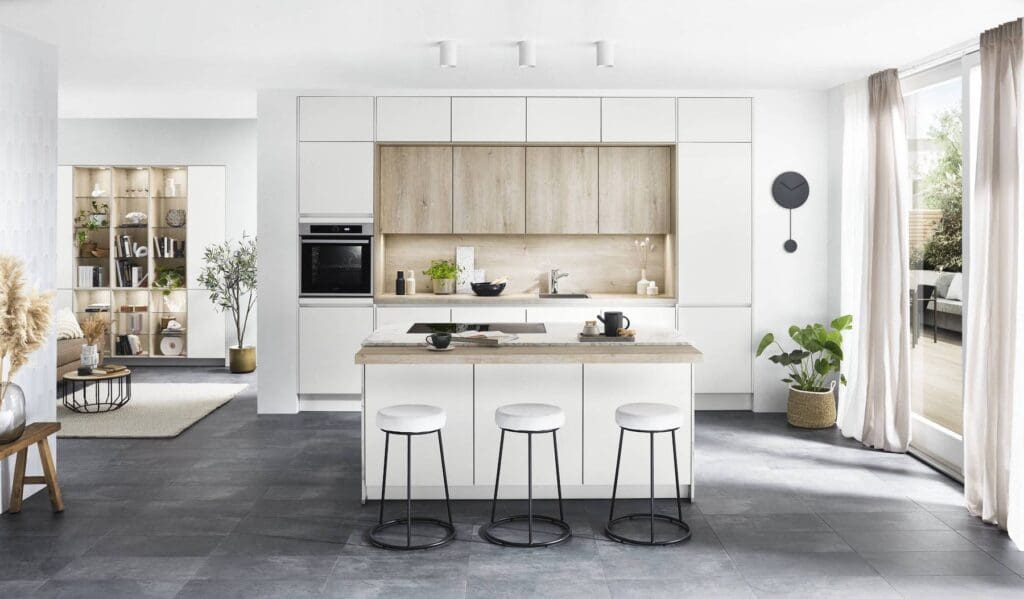
Kitchen Quality and Durability
When it comes to longevity, both British and German kitchens excel. British kitchens are traditionally built using solid timber and high-quality veneers, making them highly durable. Many British manufacturers take pride in their handcrafted approach, ensuring each kitchen is tailored to the customer’s exact specifications.
German kitchens are engineered with durability in mind. Their manufacturing process is highly automated, allowing for precision cutting, seamless finishes, and flawless construction. The result is a kitchen that is exceptionally sturdy, resistant to wear, and built to last. The use of advanced materials, such as high-density laminates and innovative lacquers, ensures that German kitchens remain pristine even after years of use.
Kitchen Functionality and Innovation
British kitchens often focus on aesthetic appeal and heritage craftsmanship. While functionality is considered, it is not always the primary driving force behind their designs. Features such as decorative cornices, open shelving, and traditional drawer runners are often favoured over high-tech solutions.
In contrast, German kitchens are built around efficiency and smart storage. Everything is designed to improve usability, from soft-close drawers to precision-cut cabinetry that maximises every inch of space. Features such as integrated lighting, automated opening mechanisms, and innovative corner storage solutions are common. The likes of Nobilia and Rotpunkt offer cutting-edge solutions that enhance convenience without compromising on style.
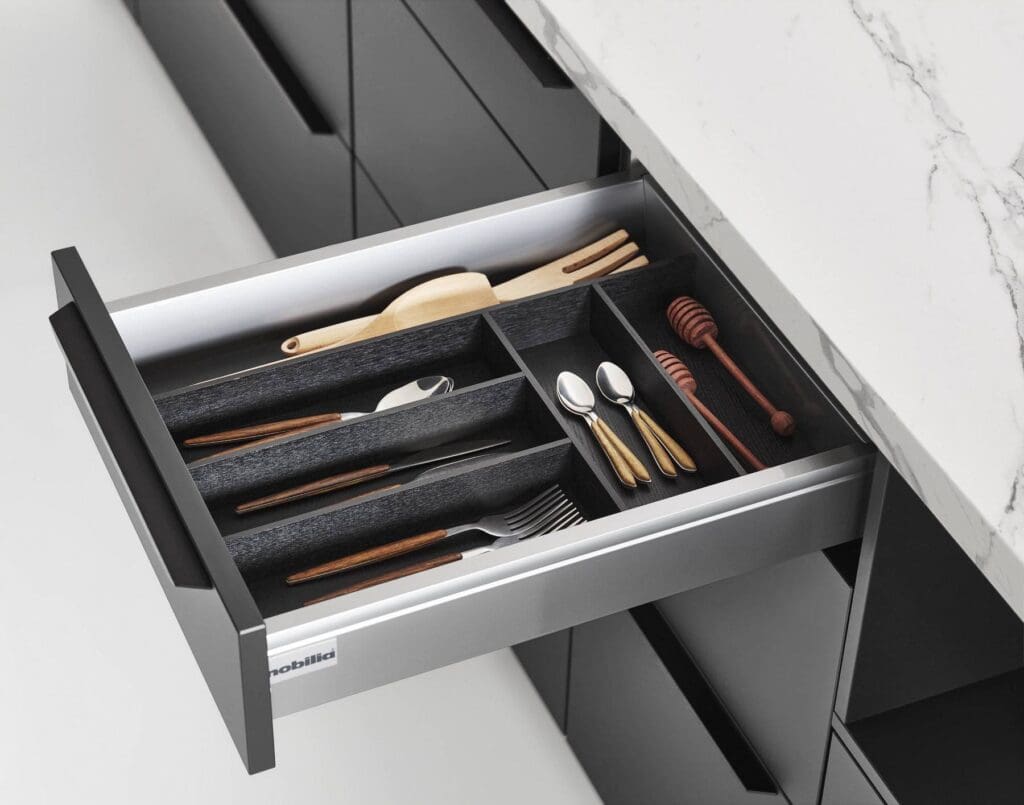

Kitchen Customisation and Flexibility
British kitchens are highly customisable, with a vast range of paint colours, timber options, and detailing available. Whether you prefer a hand-painted shaker kitchen or a contemporary slab door with bespoke handles, British manufacturers can accommodate your vision.
German kitchens, though manufactured using precision engineering, still offer a degree of flexibility. Modular designs allow for a high level of personalisation, with a choice of finishes, worktops, and cabinetry configurations. Brands like Next 125 and Pronorm provide a broad range of styles, ensuring there is a kitchen to suit every home.
Kitchen Assembly and Installation
Depending on the brand, most British and German kitchens of high quality are supplied as rigid, pre-assembled units, which can be beneficial for quick installation and ensuring structural integrity from the outset. The precision of the engineering means that every component fits together perfectly, resulting in a seamless, high-quality finish. The method of transportation is also organised and efficient, reducing the likelihood of loss or damage during transit.

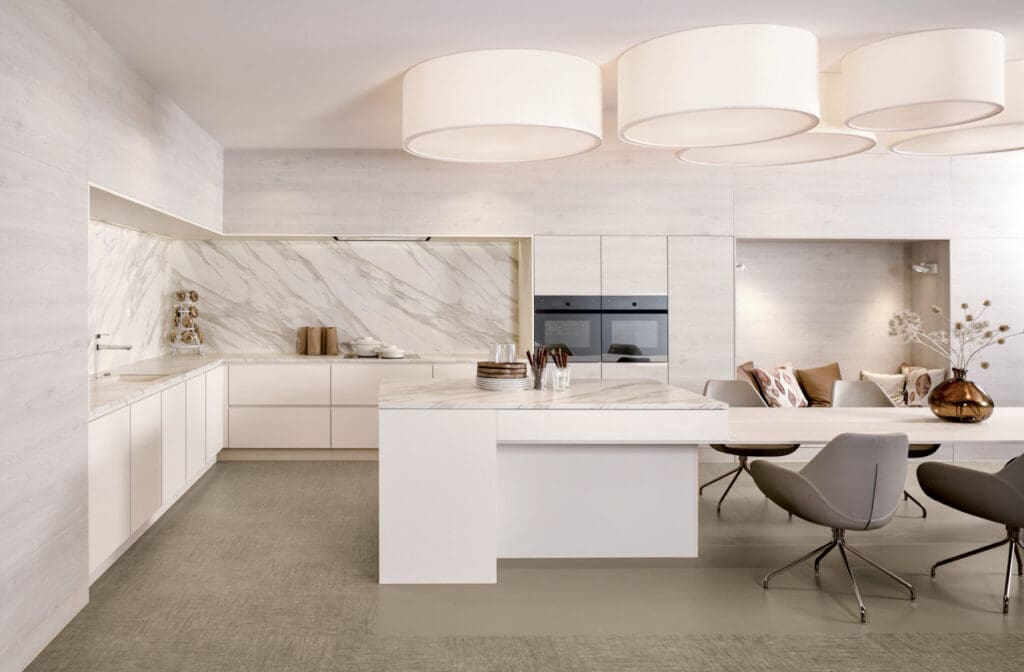
Style and Suitability for Your Home
The choice between a British or a German kitchen will often come down to the style of your home and personal preference. Traditional British kitchens tend to suit period properties, barn conversions, and country-style homes due to their timeless appeal. They bring warmth and character to a space, with natural materials and handcrafted elements making each kitchen unique.
German kitchens, on the other hand, are ideal for modern homes and contemporary spaces. Their sleek, minimalist design works well in open-plan living areas and new builds. The seamless integration of appliances, hidden storage, and handleless kitchen cabinetry creates a refined, sophisticated finish that is both practical and stylish.
Which Kitchen Should You Choose?
If you are drawn to the idea of a handcrafted, traditionally inspired kitchen with an emphasis on bespoke details, a British kitchen could be the right fit for you. The charm and customisation options make them an excellent choice for those who appreciate classic aesthetics and personalised craftsmanship.
However, if you prefer precision engineering, effortless functionality, and contemporary design, a German kitchen offers clear advantages. The seamless integration of storage solutions, durability, and refined appearance make them a strong contender for those seeking a kitchen that is both stylish and highly practical.
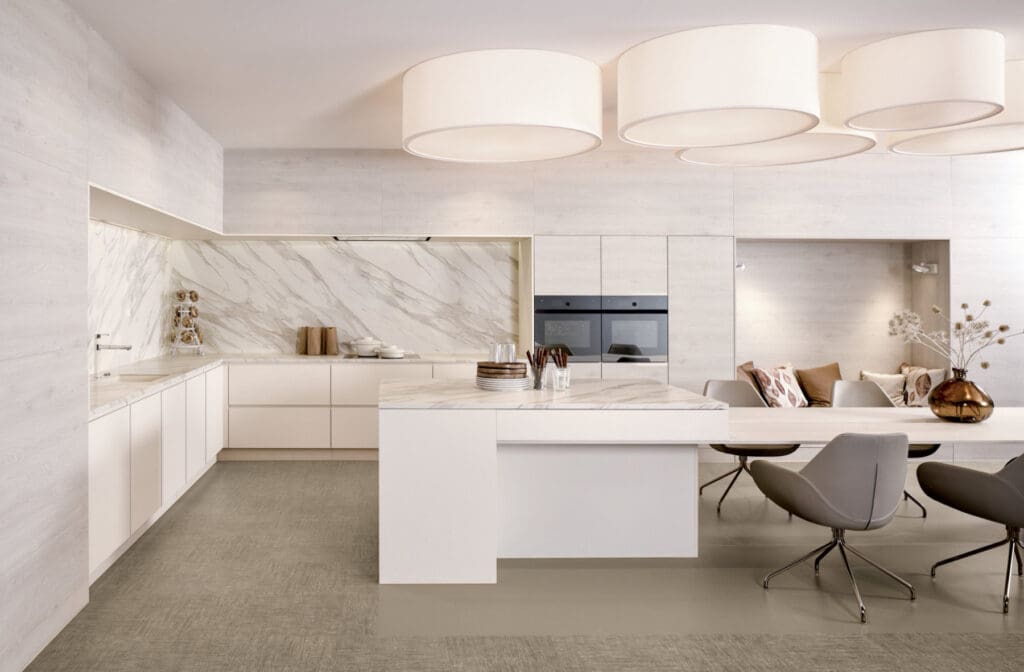

Final Thoughts
Both British and German kitchens have their own unique strengths, and the decision ultimately depends on your preferences and lifestyle. If efficiency, innovation, and a streamlined design are priorities, a German kitchen from brands such as Nobilia, Bauformat Brigitte, Pronorm, Rotpunkt, or Next 125 will deliver on every level. If traditional craftsmanship and bespoke detailing are what you value most, a British kitchen will bring warmth and individuality to your home.
Whichever option you choose, investing in a well-designed, high-quality kitchen will enhance your home for years to come. Visiting your local kitchen showroom and speaking to an expert can help you explore the possibilities and find the perfect kitchen for your space.
Want to know more? For help in choosing your perfect kitchen brand, download our brochures or talk to your local Kitchen Experts today.
